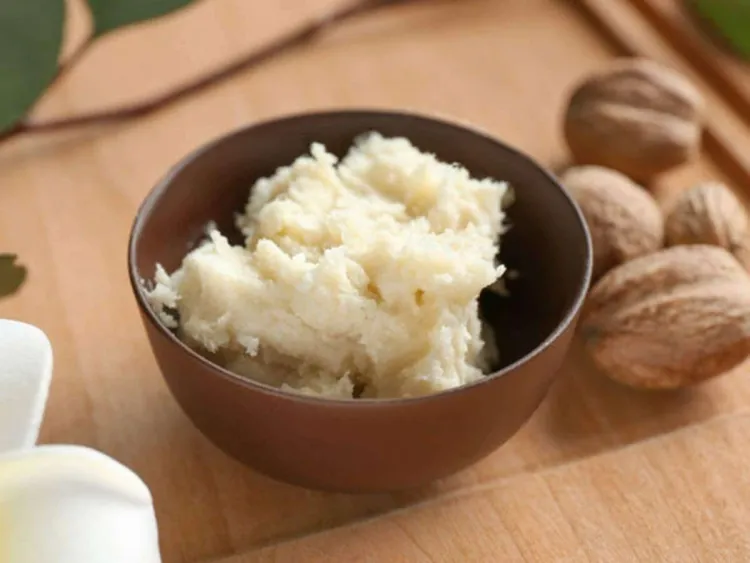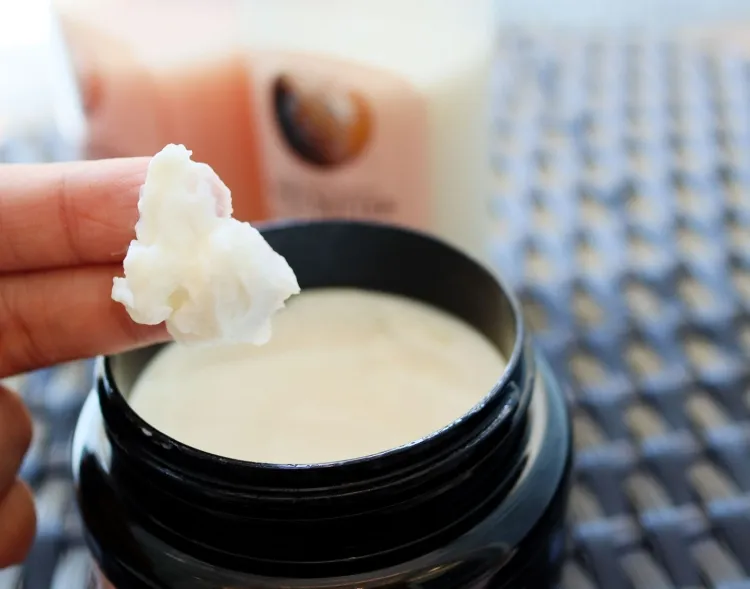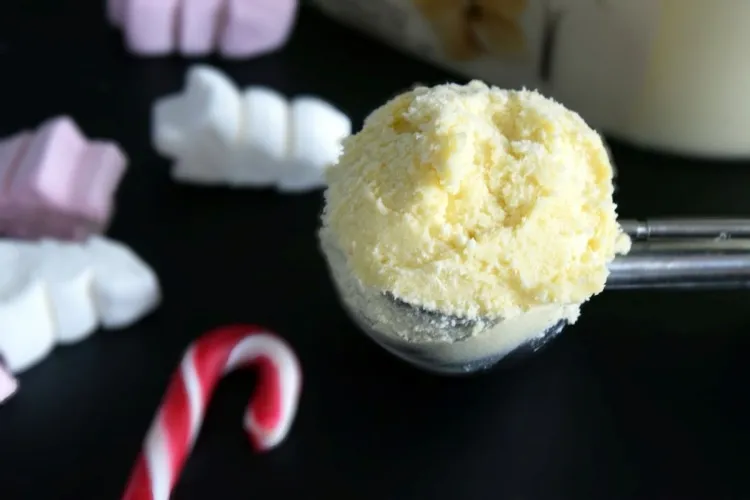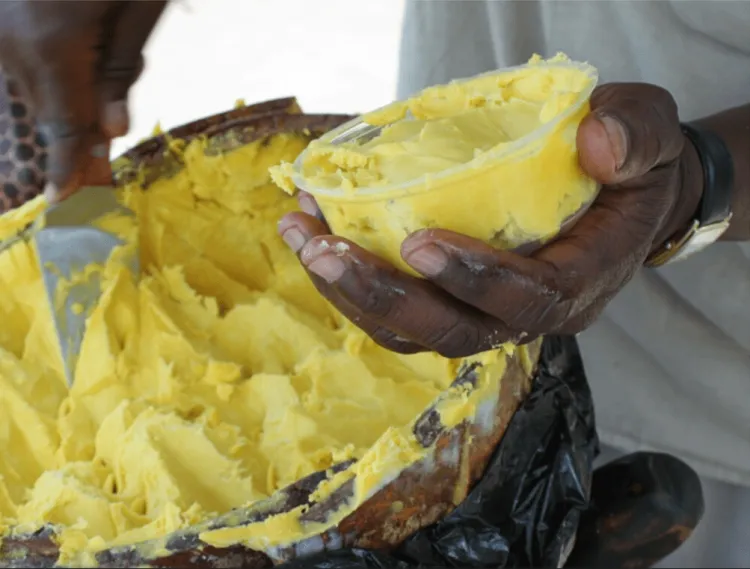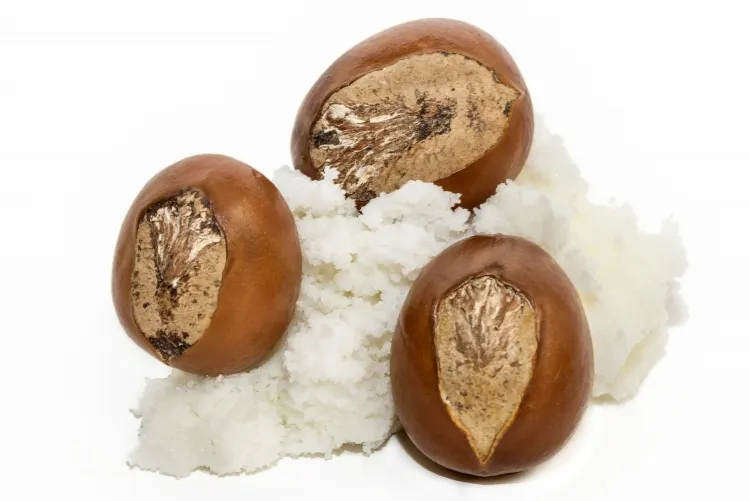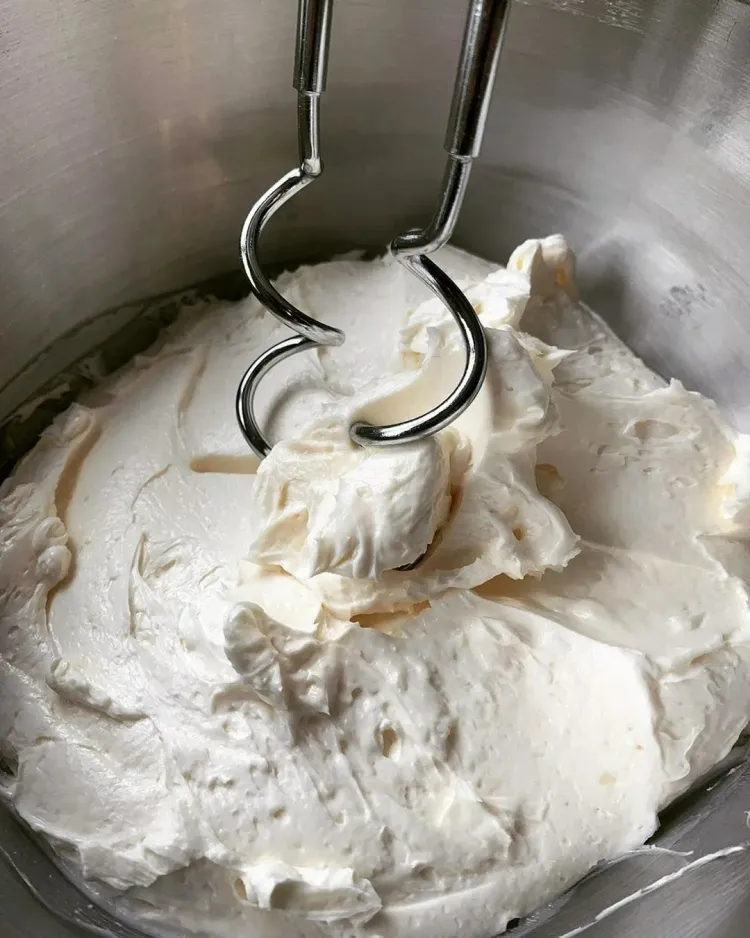Both the hair and the face are most exposed to the cold in winter and the harsh sun in summer. This is why we seek to exploit the miraculous properties of lotions, creams, butters and natural oils that must protect, moisturize and cleanse the mane. What place does shea butter for hair occupy among these beauty products from the cosmetics industry or homemade? Let’s look at this tender and protective treatment!
Why Is Shea Butter for Hair Popular in Beauty Salons and at Home?
The chemical composition determines the benefits of this product. Shea butter contains:
- linoleic, palmitic, stearic and oleic fatty acids, ingredients that balance the oils on your skin
- vitamins A, E and F, antioxidant vitamins that aid blood circulation and healthy skin cell growth
- triglycerides, the fatty part of the shea nut that nourishes and revitalizes your skin
- cetyl esters, the waxy part of shea butter that conditions skin and locks in moisture
Keep in mind that the exact composition varies depending on where the shea nuts are harvested. You can also find shea butter mixed with added ingredients, such as tea tree oil or lavender essential oil.
Shea butter of African origin is an edible vegetable oil that has a softening and nourishing effect on the skin and hair.
Also read: Can You Use Rosemary Water on Blonde Hair? What Are the Benefits and Precautions?
Is Shea Butter Good for Hair?
Although it first gained popularity as an alternative to cocoa for making chocolate, today the world has accepted it as an ingredient for natural hair products. Shea butter has quickly become a popular ingredient for all segments of the beauty industry. It is now used in hair products regardless of hair texture and is also widely found in skin care products. It is good for a flaky and irritated scalp as its anti-inflammatory properties reduce dryness and treat potential damage. This adds moisture and shine to the hair, especially if it is more coarse, dry and even frizzy.
Does the Butter Stimulate Hair Growth?
Shea butter is packed with nutrients. These ingredients will supply your scalp and follicles with nutrients, condition and stimulate them, but they’re unlikely to help you grow new hair – they just help you preserve what you already have.
What Happens If You Leave a Mask in Your Hair?
Shea butter is semi-soft in warm temperatures and firm in cooler climates. It melts easily when in contact with the skin and is completely safe. The extract does not contain chemical irritants that dry out the skin or clog pores. Its fatty acid content strengthens the natural barrier of the skin and thus protects the hair and scalp from the sun and other environmental damage. This amazing butter also does not make the hair greasy but rather sinks into the scalp without leaving a greasy residue if used with reasonable frequency. It’s a key element in sealing in the moisture you’ve lost over time. The product acts as a natural conditioner and can deeply moisturize your hair, leaving it soft and silky.
Pro tip: Look for textured hair care products like shampoo, hair mask, and conditioner that contain this natural product.
How Often Should You Use Shea Butter for Your Hair Care?
Excessive use of this beauty product can make your hair look and feel greasy. Try using shea butter once or twice a week after washing your hair. It is important not to over-hydrate your hair as this can cause serious damage.
Recipe for frizzy hair mask
One of the great things about homemade recipes is that they’re flexible and easy to customize, so you can always substitute what you have or what your hair likes. This mask is a great way to protect your hair and skin from the sun this summer.
Whipped shea butter for hair and skin
- When whipped, shea butterit is a fantastic moisturizer and shine booster. All of the ingredients in this recipe, except the butter, are optional.
- 1 cup shea butter about 250 g
- 90 ml of carrier oil(s) of your choice (optional)
- 1 teaspoon vitamin E drops (optional)
- essential oils (optional)
Put the butter in a heatproof container. Place the container in a pot of water and heat it slowly, stirring occasionally. Alternatively, you can heat the shea butter in the microwave until it melts.
Add the oils and mix well.
Let cool to room temperature. As soon as it is reached, place the mixture in the refrigerator to harden again, but it must be soft enough to be easily handled.
Whip the mixture to the desired consistency using a hand mixer, stand mixer or egg beater.

